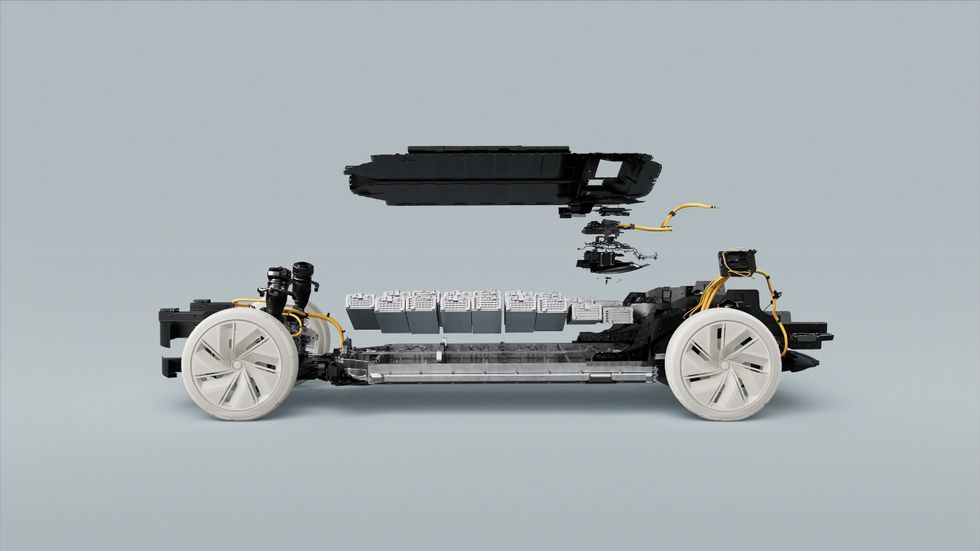Volvo will become the first car manufacturer to introduce the first “electric vehicle battery passport” in a move that could be introduced in the UK.
Volvo’s new EV passport will provide information about the origins of raw materials, components, recycled content and carbon footprint of the battery.
The passport will first be launched with its flagship EX90 SUV electric vehicle, which will begin production in the coming months.
Volvo, which is owned by China’s Geely, collaborated with UK startup Circulor to create the battery using blockchain technology to map supply chains.
Do you have a story you’d like to share? Get in touch by emailingmotoring@gbnews.uk
Volvo’s EX90 will begin deliveries later this year
VOLVO
The battery passport took over five years to develop and will be mandatory for EVs sold in the European Union from February 2027.
Volvo said it wanted to be transparent with customers about its environmental credentials, despite doing it three years before the mandatory EU rules.
Vanessa Butani, Volvo’s head of global sustainability, said: “It’s really important for us to be a pioneer and a leader,” Reuters reported.
GB News contacted the Department for Transport and the Department for Environment, Food and Rural Affairs for comment on whether the UK could implement such a rule.
Volvo’s EX90 SUV will start production soon at its manufacturing plant in Charleston, South Carolina, and will be delivered to customers in North America and Europe in the second half of the year.
The “groundbreaking” SUV is expected to have a fully electric range of up to 363 miles, fast charging capabilities and acceleration speeds of 4.9 seconds (0-62mph).
According to Circulor CEO Douglas Johnson-Poensgen, the passport will include up-to-date information about the EV’s battery health and will cost the manufacturers $10 (£7.88) per car.
Volvo owners will be able to access a simplified version of the passport using a QR code located on the inside of the driver’s door.
European Union rules outline how from February 1, 2027, all electric vehicle batteries over 2kWh sold will require a unique battery passport.
This is part of the EU’s wider plan to ban the sale of new cars and vans with internal combustion engines from 2035 – the same deadline as the UK.
The EU Battery Regulation calls on manufacturers to address “social and environmental risks related to extracting, processing, and trading raw materials for battery manufacturing purposes”.
All of the information included in the EV passport will be used to help vehicle owners and garages deal with any repairs and replacements that may be needed.
LATEST DEVELOPMENTS:

Volvo is aiming to be fully electric by 2030
VOLVO
The RAC stated that details on the passport will be available to the general public, from the EU, as well as regulatory bodies.
Johnson-Poensgen added that it has taken a long time to develop the battery passports, saying: “Car manufacturing has never been about which rock went into which component and which got connected to which car.”

